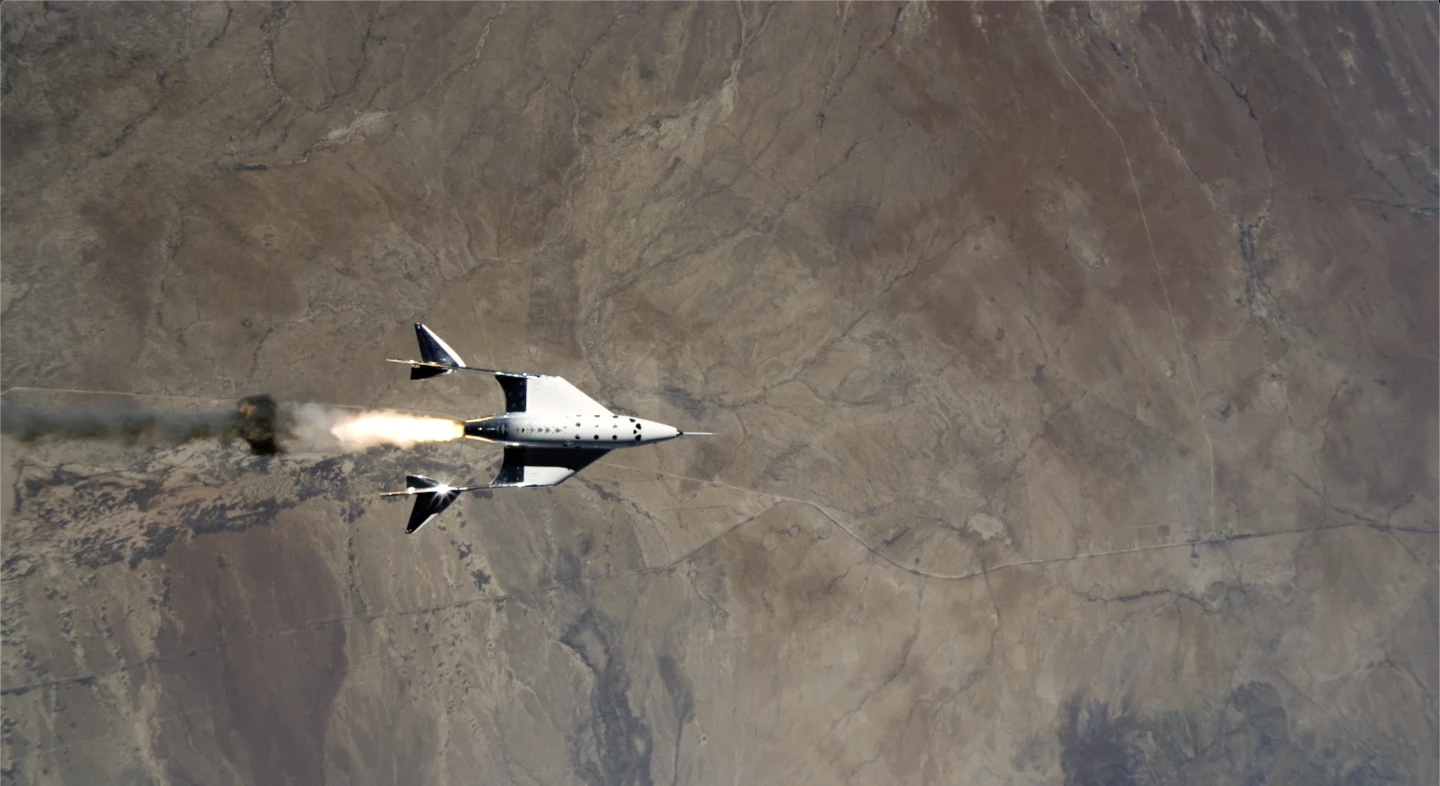Virgin Galactic has put a recent setback behind it to reach space for only the third time in its history, and the first time since relocating to its new Spaceport America base in New Mexico last year. The company's successful test flight over the weekend marked another step forward in its plans to launch tourists into space, while also carrying some important research payloads along for NASA.
Virgin Galactic had originally set its sights on reaching space for a third time last December, following successful attempts in 2018 and 2019. The company's dual-fuselage VMS Eve mothership carried the VSS Unity spaceplane to orbit and released it as planned, though its rocket failed to fire, which brought a swift but safe end to the mission.
After carrying out its investigations into the cause for the failure, the company had originally planned to make another attempt in February, though this was then pushed back to May as it completed a maintenance review of the VMS Eve mothership. The company also introduced a third-generation spaceship in March, called VSS Imagine, with its first glide tests expected to take place this US summer.
The successful spaceflight flight took place on Saturday, marking the first ever spaceflight from the state of New Mexico. VMS Eve carried the spaceplane into the air and released it at altitude, with the VSS Unity then igniting its rocket engines and blasting its way to an altitude of 55.45 miles (90 km), with both vehicles making it back to Earth for a safe landing.

“Fifteen years ago, New Mexico embarked on a journey to create the world’s first commercial spaceport," said Sir Richard Branson. "Today, we launched the first human spaceflight from that very same place, marking an important milestone for both Virgin Galactic and New Mexico. I am proud of the team for their hard work and grateful to the people of New Mexico who have been unwavering in their commitment for commercial spaceflight from day one. Their belief and support have made today’s historic achievement possible.”
The flight offered Virgin Galactic a chance to test out upgraded stabilization systems, flight controls and technology to reduce electromagnetic noise. But the spaceplane also carried with it research experiments for NASA's Flight Opportunities program, which aims to rapidly test and develop new technologies for space exploration. The company is now reviewing the flight data and will inspect the spaceplane and mothership ahead of their next outing.
“Today’s flight showcased the inherent elegance and safety of our spaceflight system, while marking a major step forward for both Virgin Galactic and human spaceflight in New Mexico," says Michael Colglazier, Chief Executive Officer of Virgin Galactic. "Space travel is a bold and adventurous endeavor, and I am incredibly proud of our talented team for making the dream of private space travel a reality. We will immediately begin processing the data gained from this successful test flight, and we look forward to sharing news on our next planned milestone.”
Source: Virgin Orbit





